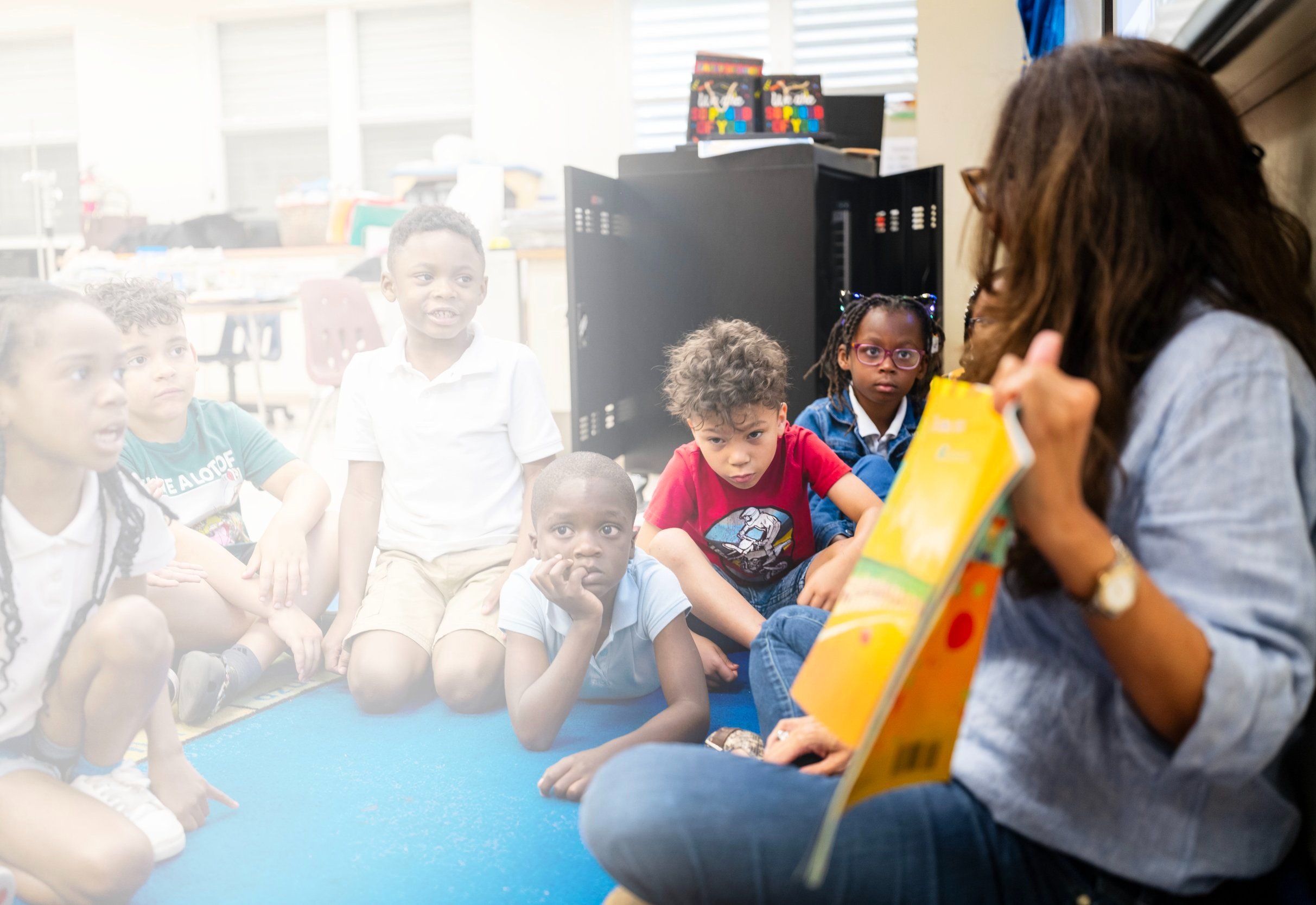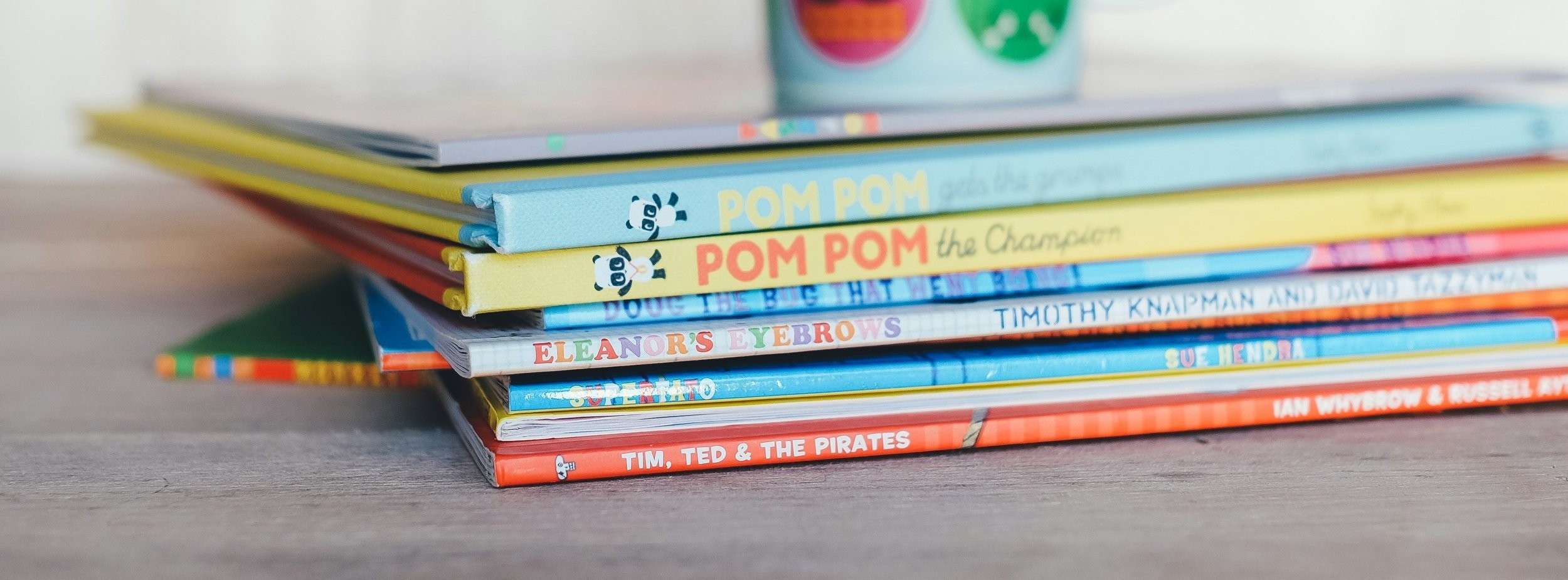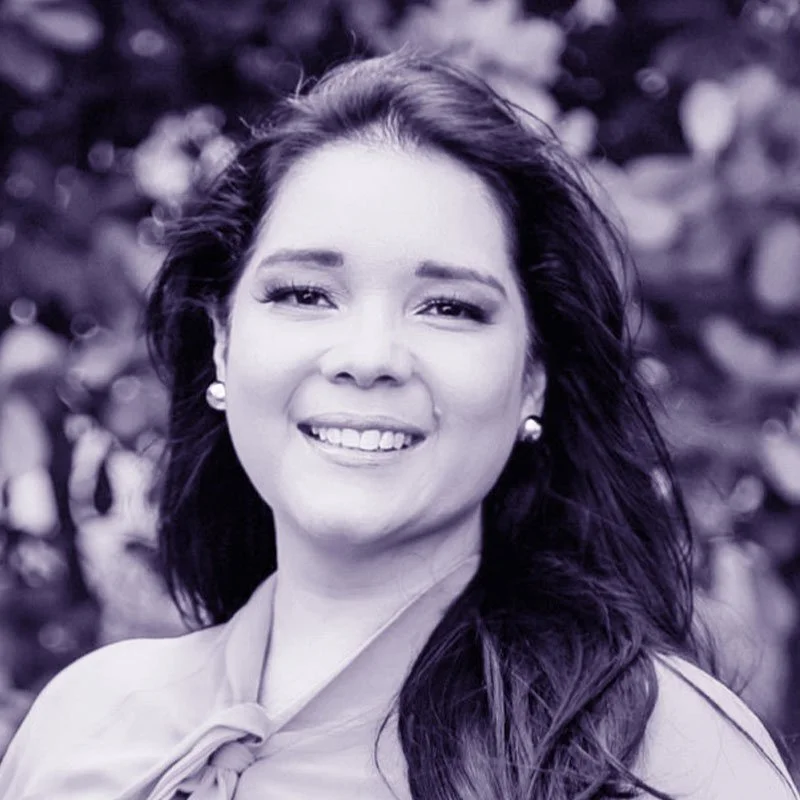
Literacy is a right, not a privilege
The U.S. needs a sustainable model for education with effective reading programs for kids, support for families, and empowering professional development for educators. So, we’re creating them.
The Art of Empathy &
the Science of Reading
Literacy is an essential key to reaching the American dream. The Lucy Project is here to level the playing field.
How? By advancing the Science of Reading and evidence-based practices to the whole community. We don’t just do this because it’s compassionate – it works.
Nationwide and in Miami-Dade, so many of our youth – particularly those with learning disabilities – lack access to the resources they need to thrive. Investing in students’ literacy not only provides them with greater opportunities in life. It uplifts the generations that come after them.
If we continue training educators in the Science of Reading and teaching students with Structured Literacy, we’ll foster a community-driven education system. If we keep going, Lucy Project-trained teachers, throughout their careers, will deliver the best literacy instruction to thousands of students.
What We Value
As The Lucy Project continues working for a future where all children learn to read and all educators access game-changing knowledge in the Science of Reading, these values are essential.
Inclusivity
We value every child, family, and educator. We embrace diversity and ensure that our programs are accessible to all, regardless of background, ability, or circumstance. Everyone is welcomed and empowered.
Integrity
We believe in doing the right thing at all times. Our actions, decisions, and communications reflect honesty and ethical responsibility. We hold ourselves accountable to our mission, our families, and our community.
Quality
Every child we serve receives the same high level of quality, commitment, and care, regardless of financial circumstances. Because reading is a right, not a privilege.
Teamwork
Collaboration is key to our success. We work together — staff, students, families, and community partners—supporting one another to achieve our shared goal of literacy for all.
Where Our Story Started
Tell a mom she can’t help one child and she’ll change the course for thousands
“I know what it's like to have a struggling child and little guidance. It takes a team to ensure every child learns to read and succeed in life. The Lucy Project is in your corner.”
Sandra Bermudez, founder of The Lucy Project
When a guidance counselor told Sandra Bermudez that there was nothing she could do for her seven-year-old daughter Lucy, she refused to just give up. Reading-related learning challenges are common, yet schools aren’t set up to support these students. Some said Lucy might never read well.
Lucy’s parents had the honor of adopting her when she was three months old; she quickly became the joyful center of their world and they knew they had to fight to find a way to help their daughter. So, they did – tirelessly. Thanks to an evidence-based, systematic, explicit, and multisensory approach to learning – and to Lucy’s hard work – by 8th grade she was reading at an 11th-grade level. Lucy has dyslexia. But that doesn’t stop her from excelling in school – and in life.
It takes a team to ensure every child learns to read and succeed in life. That is why The Lucy Project approach has been so successful. School administrators, educators, literacy specialists, nonprofits, parents and caregivers, and funders who collaborate are a force that can change the world.
Why is literacy the mission?
It unlocks opportunities for a full life: education, income, and health, especially for children from low-income families.
Children deserve reading remediation tailored to their unique needs, so we honor the individual. We take the time to understand each child and design individualized plans that help them thrive.
Literacy is the Answer - We Make It Accessible
The results of low literacy in the US are tragic but when the right resources are available, they’re completely avoidable.
Education
By the end of 1st grade, a poor reader only has a 10% chance of improving. If they don’t catch up by the end of 4th grade, they’re more likely to drop out of high school.
60% of low-income families don’t have children’s books at home.
70% of children whose parents have low literacy likely show low reading levels.
70% of 4th graders read below grade level. 82% of these children are from low-income homes.
Income
The relationship between education levels and employment is proven. High-paying opportunities practically evaporate for applicants with low literacy levels.
Over 40% of adults with the lowest literacy levels live in poverty.
17% of Hispanics and 21% of African Americans live in poverty – that’s much higher than the national average.
Crime
Children who don’t read well by 4th grade are three times more likely to end up in the criminal justice system than their literate peers.
85% of youth offenders struggle to read.
75% of prison inmates have low literacy or dropped out of high school.
Health
Navigating healthcare is difficult when you can read. Imagine if you couldn’t.
People who had at least 12 years of education had a life span of one and a half years longer than those with less education (Harvard University study).
Anyone with low literacy is less likely to use preventive services, meaning a higher chance of delayed diagnoses. They can struggle to follow medical instructions and experience health insurance complications.
What We Do for Our Community
Our programs are founded on the Science of Reading and Structured Literacy, and they’re designed to reach everyone in the community who influences literacy rates.
The Literacy Hub
Furnishes a model for Title I teachers and students to succeed
Unlocking Literacy
Our annual conference for the reading revolution
Reading Roadmap
Learning experiences tailored for educators and parents — at no cost.
Literacy Ladder Kids
Equips all children with essential skills to excel academically and beyond during private lessons on a sliding scale cost.
Literacy Ladder Pro
Builds valuable expertise, giving teachers actionable tools for immediate implementation
R.O.A.R.S. After-school
Fuels South Florida children socially and academically at select locations, making Structured Literacy part of children’s routines 2-3 times a week.
Leaders at The Lucy Project
We are parents and educators, specialists and advocates who’ve been where you are.
Board of Directors
Rocio Velazquez
Board Chair
Sandra Bermudez
Founder & CEO
Dr. Tracy Ross
Secretary
Heather Fleming
Education Chair
Suzan McDowell
Communications & Marketing Chair
Elizabeth Milian
Strategic Initiatives Chair
Madeleine Fields
Director
Jaqueline Gonzalez
Development Chair
Dr. Aaron Kuntz
Director
Alex Soto
Director
Director
Nataly Valdez
Monica Llerena
Director
Barb Schlatter
Director
Patrick Chery
Director
Jorge Borges
Director
Advisory Board
Dave Lawrence Jr
Founding Board Member
& Director Emeritus
Natalia Walchli
Founding Board Chair
Staff
Sandra Bermudez
Founder & CEO
Corina Gonzalez
Director of Operations
Lisany Dominguez
Education Manager
Carmen Marroquin, PhD
Education Manager
Jo Mejica
Executive Assistant
Erika García
Administrative Specialist
Catherine Sayen
IMSE Master Trainer
Learning Specialists
Jeniffer Cruz
Learning Specialist
Shamilla Edgecomb
Learning Specialist
Lis Garcia
Learning Specialist
Ysabel Gonzales
Learning Specialist
AnaMaria Gonzalez Muriel
Learning Specialist
Eve Hall
Learning Specialist
Sidney Jerome
Learning Specialist
Gregory Ordonez
Learning Specialist
Amanda Roy
Learning Specialist
Learning Specialist
Jahira Tide
Case Studies
Impactful programs like these can be implemented anywhere students go to learn. We’re proving that institutional, community-focused partnerships make that happen.
The Literacy Hub
Fundamental reading skills are traditionally taught between PreK and 2nd grade. By 3rd grade, students who aren’t reading on grade level have a harder time catching up; they struggle in other subjects and eventually college and career readiness. Nonprofit and academic partnerships can stop this negative trend before it starts.
Our Approach: Mentor kindergarten teachers in Science of Reading methodology and get as many of their students reading on grade level by the school year’s end.
Our Partner: Norwood Elementary, a Title I school in Miami Gardens
Our Results: 91% Reach Grade Level. At the start of the year, 52% of students had a grasp of the alphabet and were familiar with books. This partnership elevated kindergarten students to surpass anyone’s expectations.
No Summer Slide, Just Upside
Long breaks from academics can make it harder for students to progress when they get back to school. Integrating education and fun makes a big difference. During a six-week summer program, The Lucy Project’s Structured Literacy lessons helped 30 struggling students in grades K-5 gain academic momentum, catching up to average students and standards.
Our Approach: Provide an individualized experience with daily small-group instruction that’s always based on where students are, not where they’re “supposed” to be.
Our Partner: Macedonia Church, the oldest black church in Coconut Grove
Our Results: 83% progressed in phonological awareness and 100% progressed in alphabetical awareness, decoding, encoding, and sight words. We brought an average 15% growth from baseline and an average 27% increase in writing skills.
See Your Support in Action
Literacy isn’t just about words. It’s about opening doors to a fairer future. Every year, we’re progressing the Science of Reading and differentiated support – and seeing stunning results. We’re empowering educators’ and students’ potential in school and in life.









































